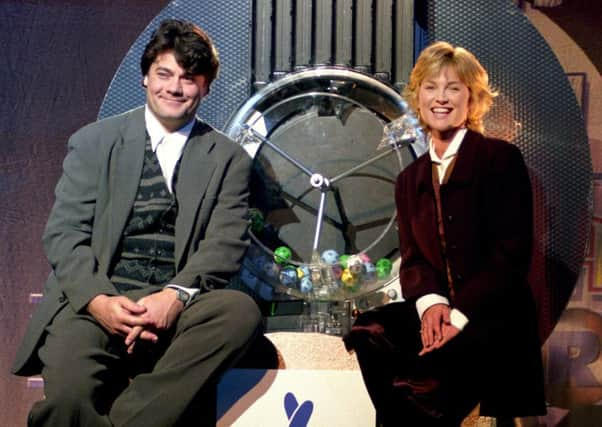Jim Duffy: Lottery winners should share out the benefit


Pink Floyd was an amazing group of artists that really pushed the boundaries in music. I recall listening to the album, Dark Side of the Moon. It really blew me away and gave me a new perspective on music. One of the tracks on this album is called Money. The lyrics are enlightening and paint a picture of greed with all the trappings that money can buy. But, as we know Money is not everything and while necessary in this society, it has become associated with some pretty nasty characters. Even looking at movies like Wall Street, where Michael Douglas plays Gordon Gekko, money is seen as not so much an enabler as a disabler of human beings and the human spirit. The modern day Gekko is Bobby Axelrod in the box set - Billions. I will not spoil it for you, but the stuff that he gets up to is pretty mind boggling and highlights his moral turpitude. And money makes it all possible. So that is why I am so glad that the National Lottery has changed how it markets itself.
When the National Lottery operated by Camelot first surfaced back in 1994, the first two draws were guaranteed jackpots of £10 million. The Prime Minister at the time - John Major, yes the grey puppet man in Spitting Image - launched the National Lottery. Since then, it has created thousands of millionaires and paid out billions in winnings. The average lottery winner buys 4.5 new cars, while 10 per cent buy more that ten cars. This is nothing compared to some of the purchases and opulent lifestyles that have taken place as a result of getting six numbers correct on a Wednesday or Saturday evening. But the National Lottery itself appears to be looking at the filthy rich, buy-what-they-want and have-what-they-want stereotypes we see in the redtops.
Advertisement
Hide AdAdvertisement
Hide AdWhen the National Lottery marketed to us, and boy did it market to us, the rhetoric was all about the focus on you - yes you. “It could be you” was focused on the individual winning that obscene amount of money that would be life-changing. Yes, if I won, then it was all about me and how that cash would change my life and make it better for me. Screw anyone else as I would move to a castle, have a chauffeur who would drive my Rolls Royce Phantom and basically I would be my own centre of attention in whatever I wanted to do.
Then the tone of voice changed as National Lottery sales dipped and it had to market harder. It then switched its guns to celebrities that we may class as “marmite”. The singer James Blunt, the celebrity Katie Price and the TV presenter Noel Edmunds were all used in a campaign of “pleasenotthem” with the relevant Twitter hashtag to boot. This was clever, but not strong enough to get me emotionally bought in to the National Lottery as a brand. But let’s make no mistake, this particular franchise is a business and has to make money, while doling it out. So it has to listen to its customer and reflect on what is going on in society. I truly believe it has, and I just love its new advertising slogan.
The National Lottery has perhaps come of age in its approach to why we would and should want to win huge amounts of cash. Not simply to stick up barriers from the poor people or buy a private island with jet skis and a private chef. Not simply to buy off politicians, hire well known DJs for the night and wear the same clothes as Taylor Swift or George Clooney. No, it is to share it with others and those we love.
That is the magic of winning the National Lottery of any huge amount of money. “Who wins if you win?” epitomises exactly what we could do so powerfully with money that is overwhelming.
I just love that and as I walk my dog each day I dream of who in my family and network I can reward and help. It doesn’t have to be jaw dropping amounts of cash. But enough to make them feel special and know that I care about them and what they have done for me.
I think the joys here would be just wonderful.
This new play by the National Lottery focuses the mind when buying a ticket. I’m not using it to ease the pain of simply having a few bob and getting by nicely. I’m not thinking about what car I can buy. No, I’m thinking about the difference I can make to others’ lives with the winnings.
So, what would you do? I challenge you to write down on a piece of paper what you would do with £10 million. Who would get a £10,000 thank-you for shaping who you are? A favourite teacher from school who inspires you? A nurse or career who went that extra mile to look after a sick relative?
Money in this regard can be seen as an enabler to the human spirit. It’s a different way of thinking and perhaps inspired by the millennials who see the world differently from how I was brought upon to see it, and how money is portrayed by Pink Floyd.